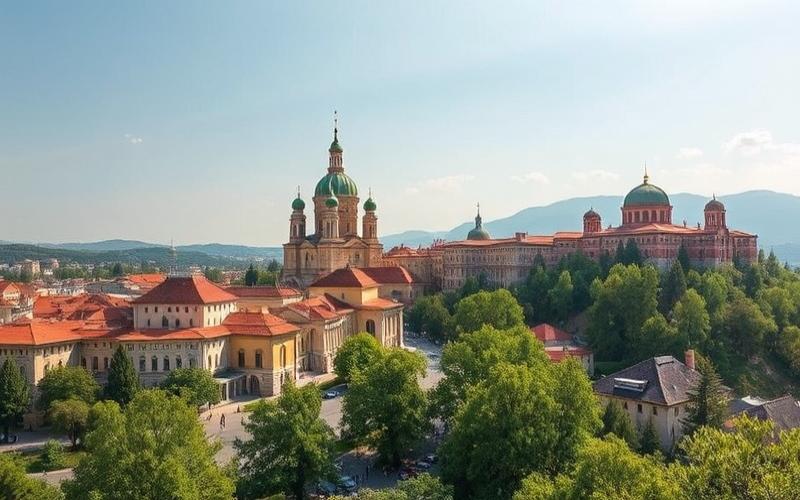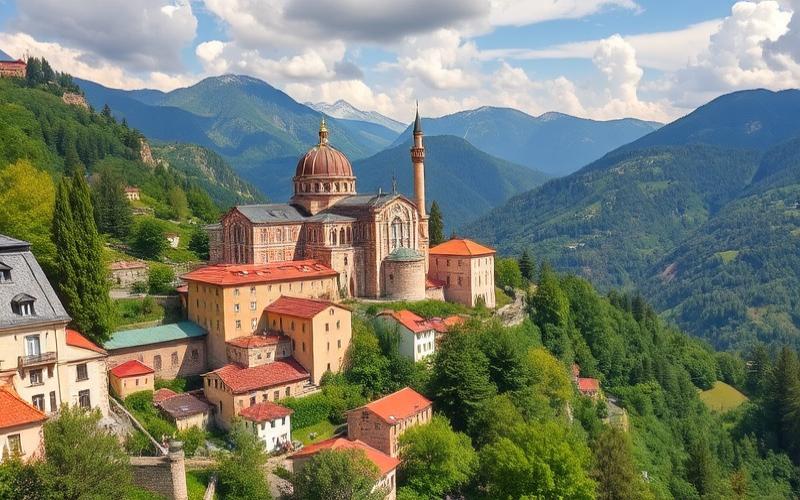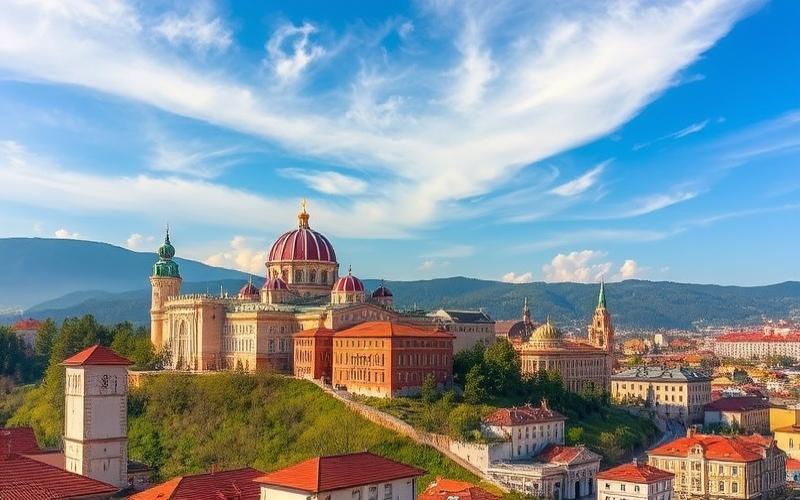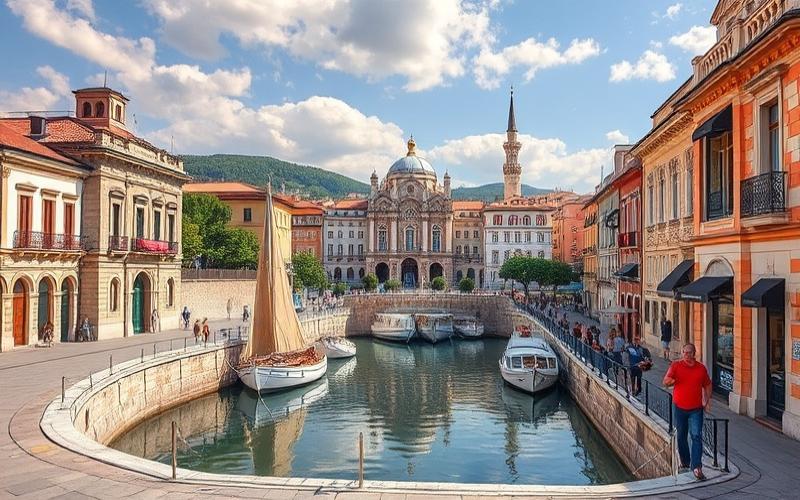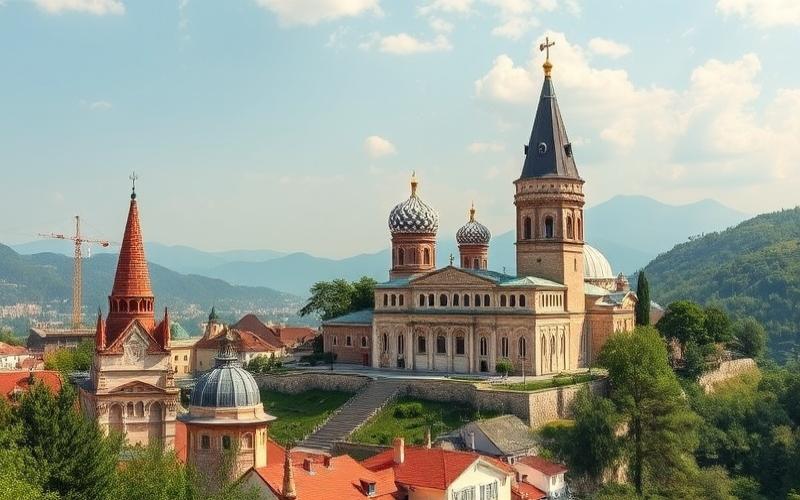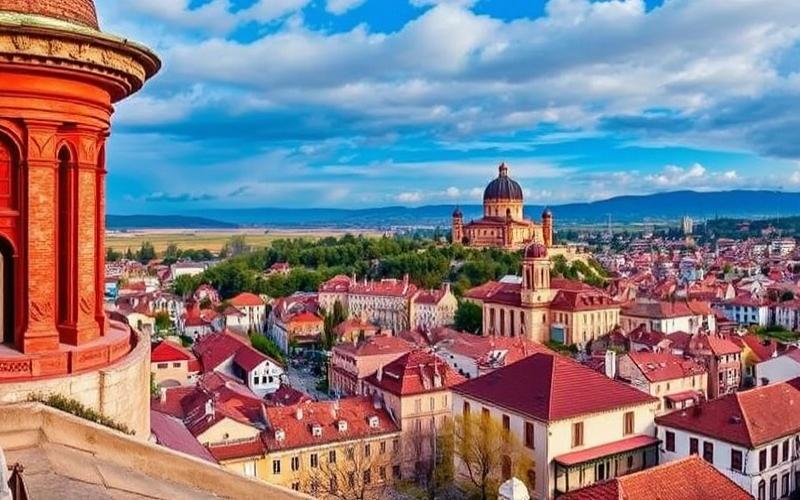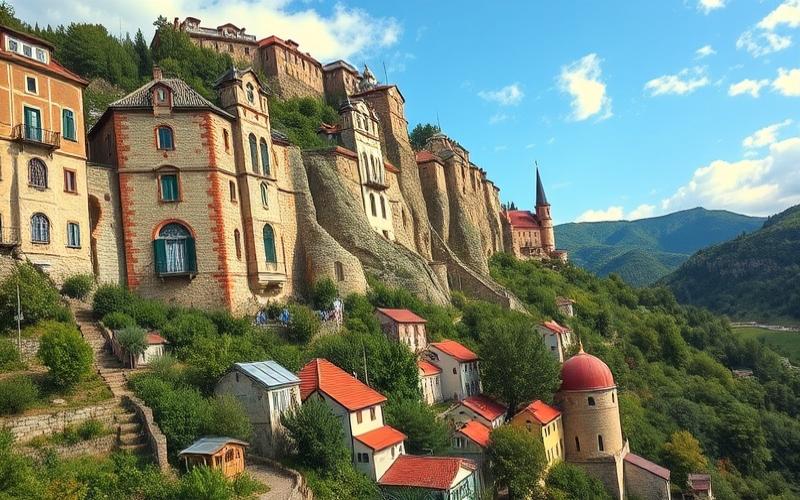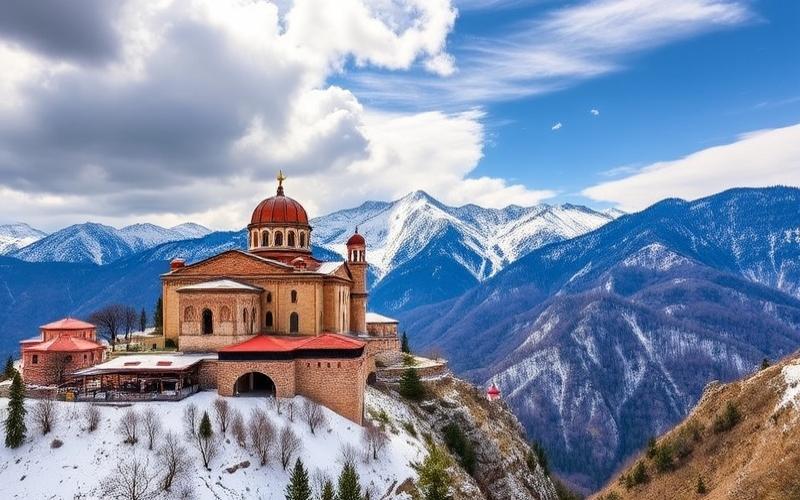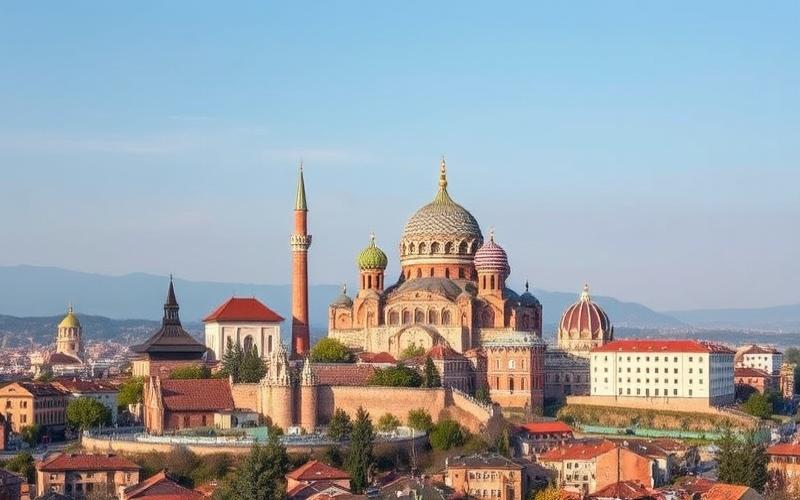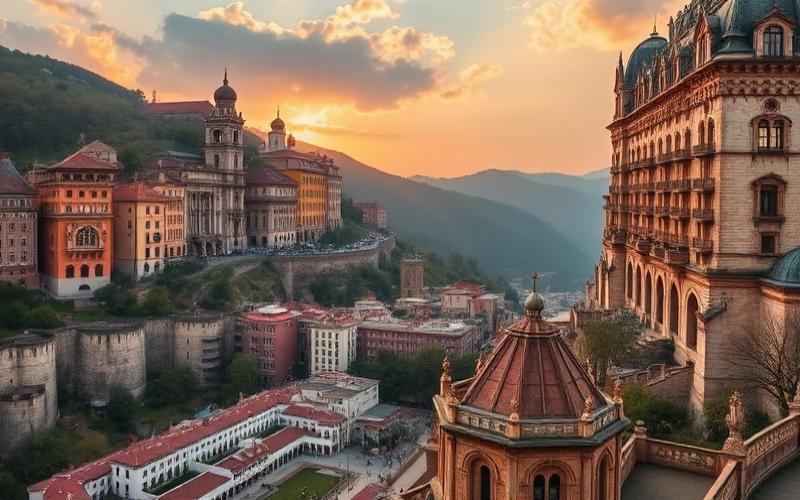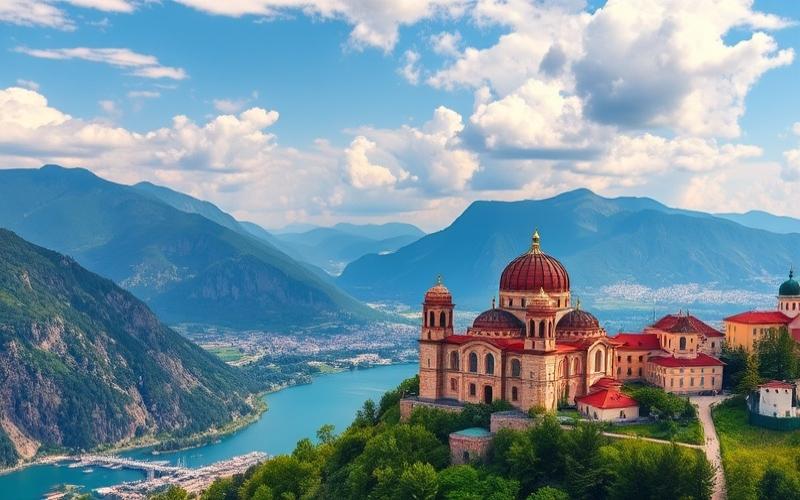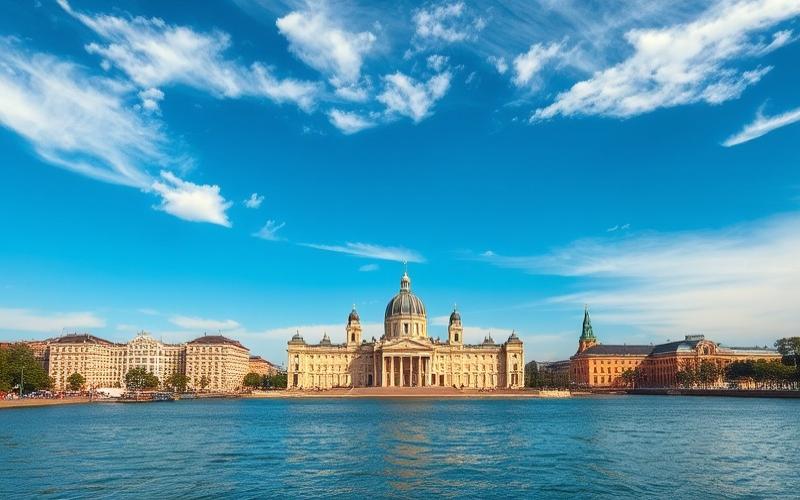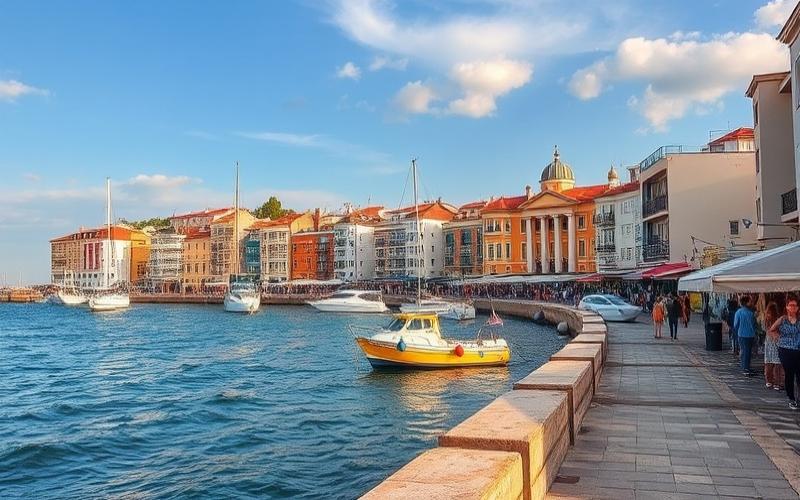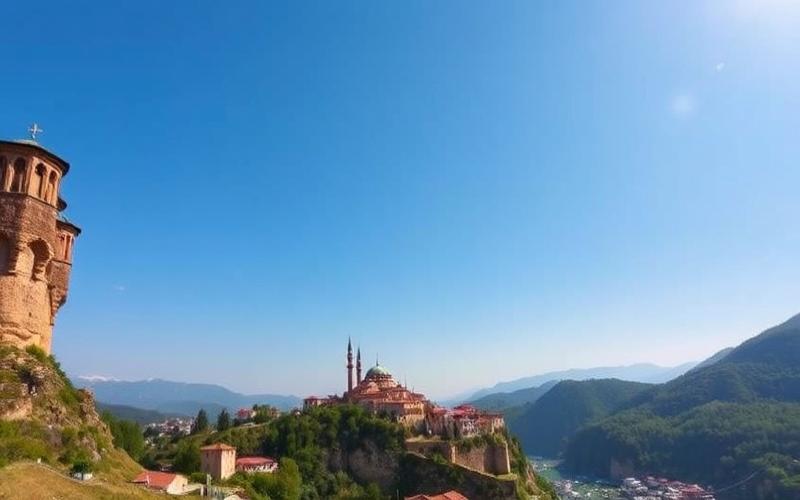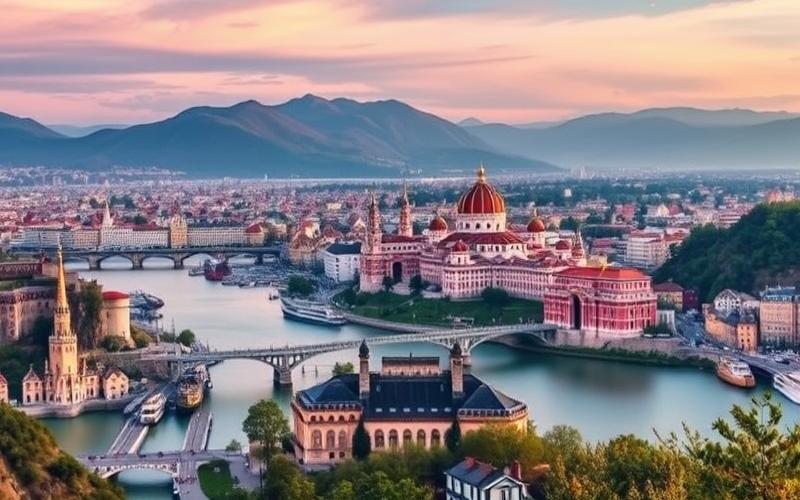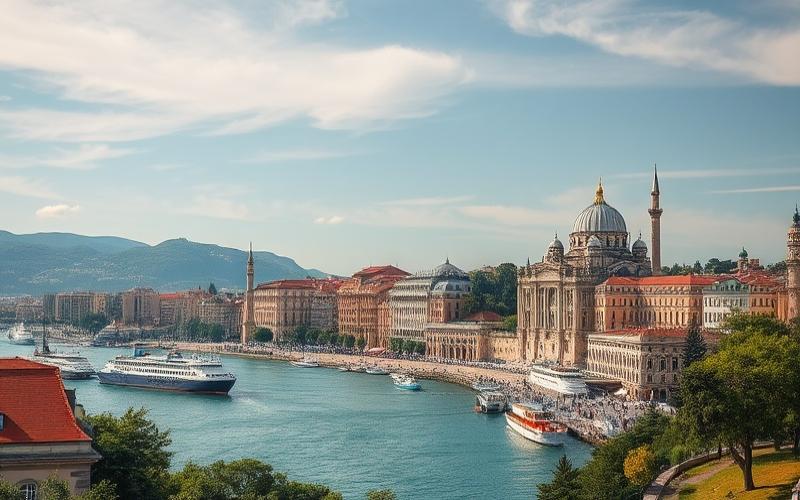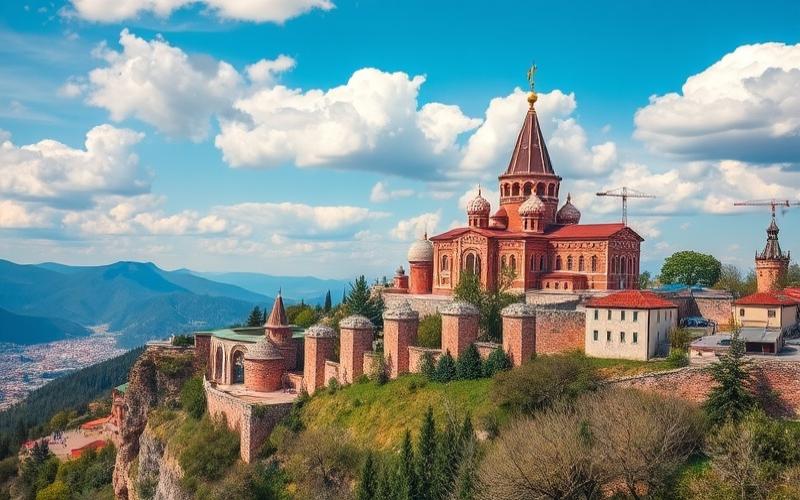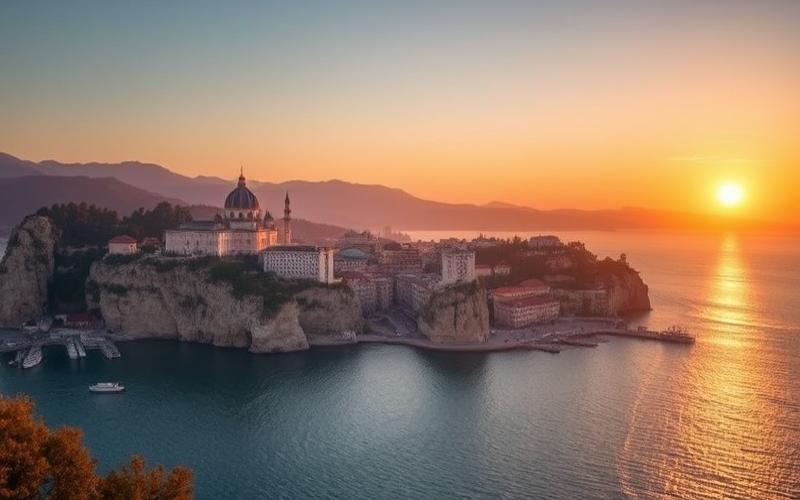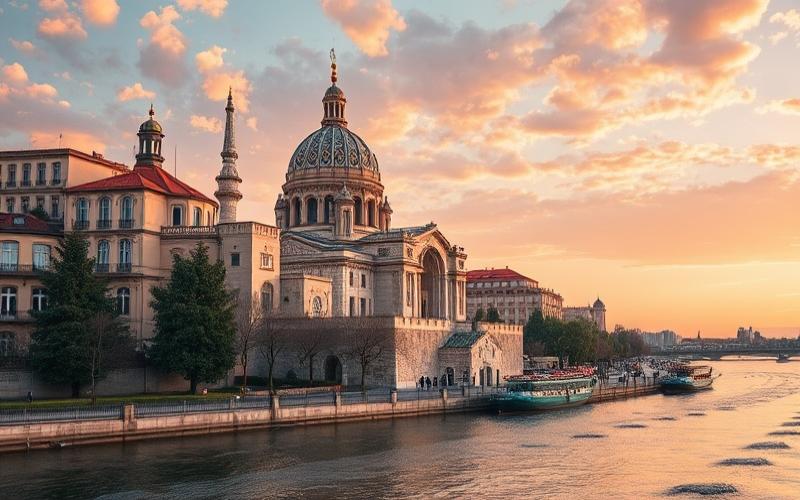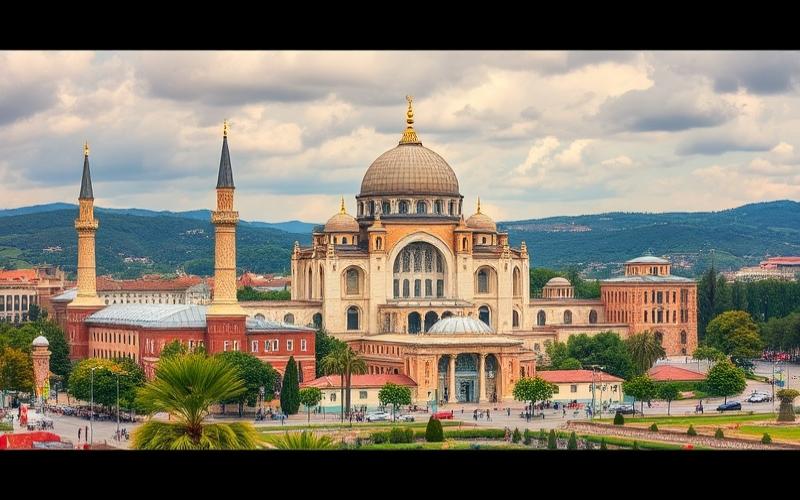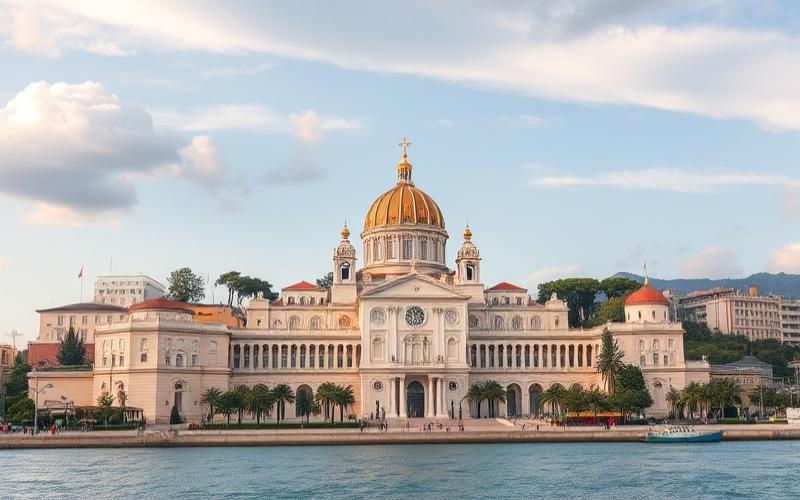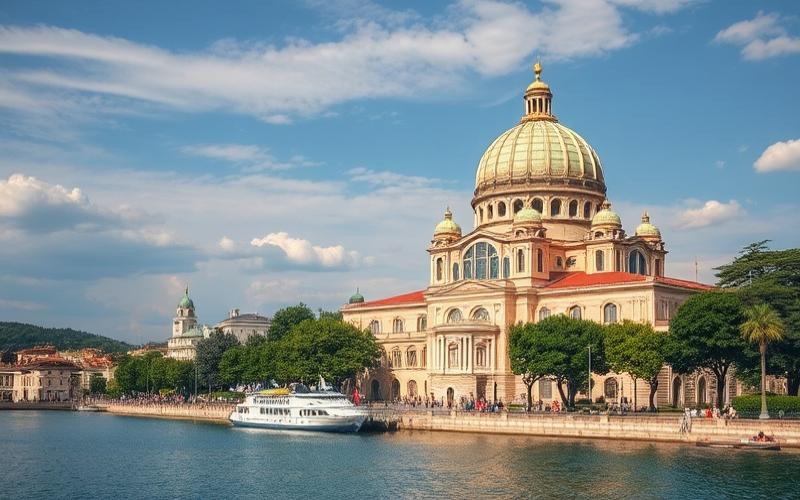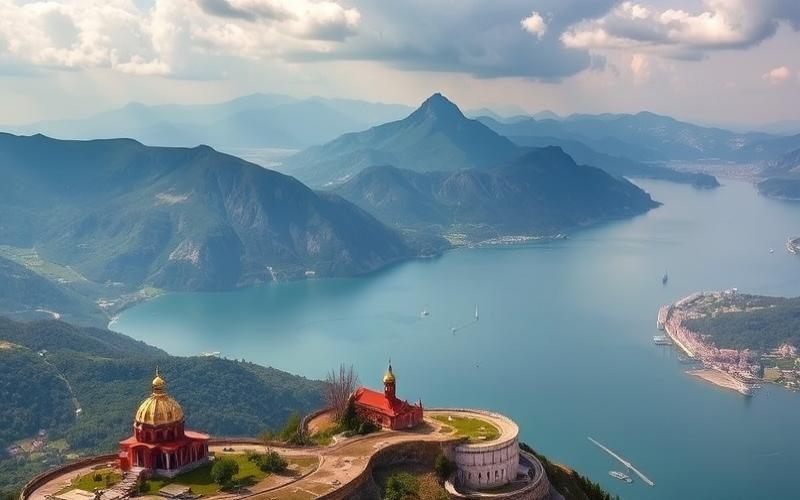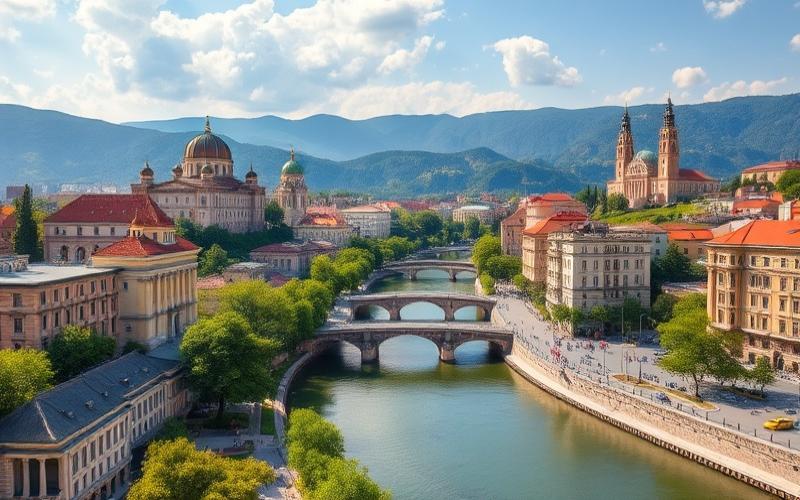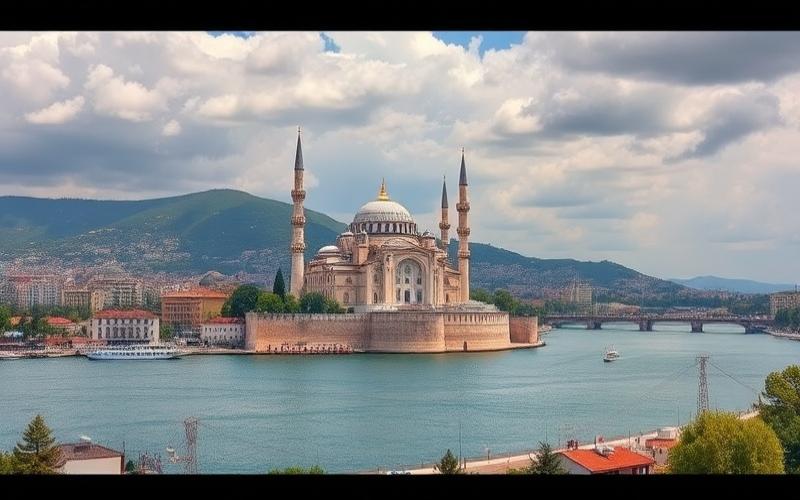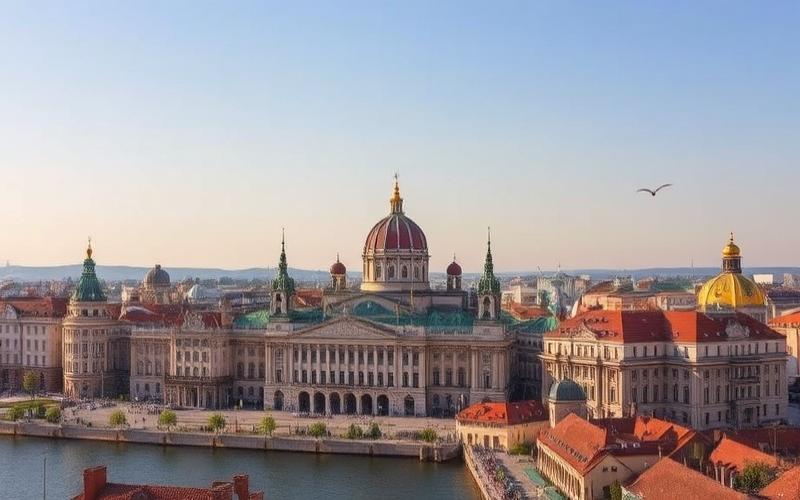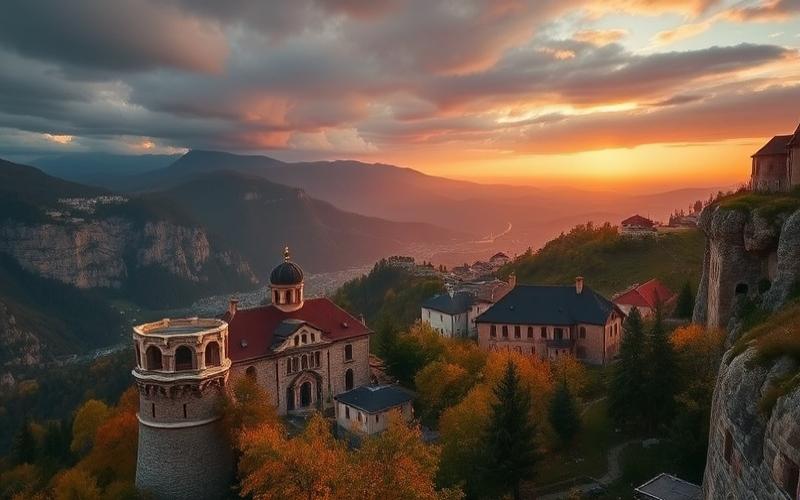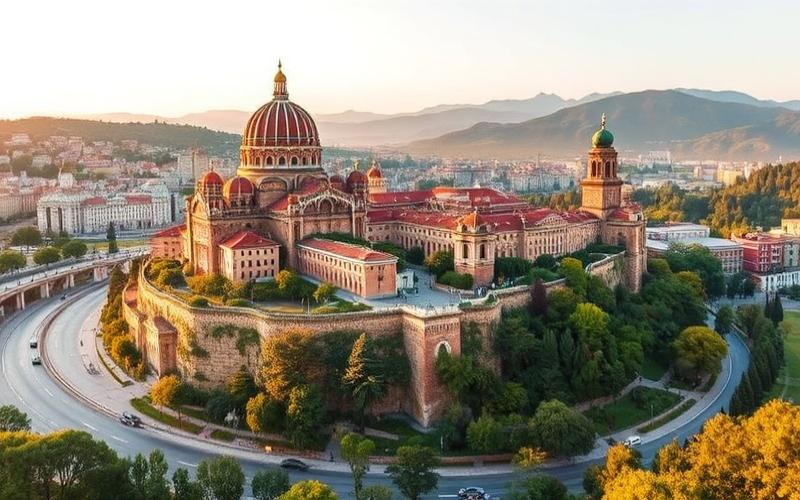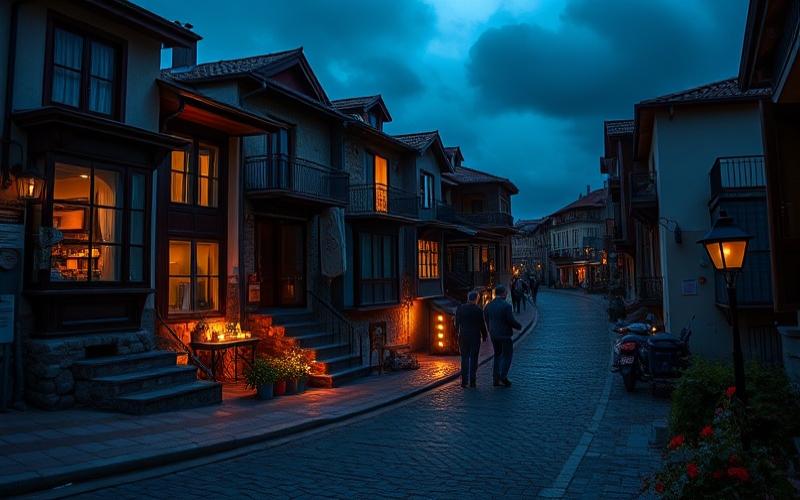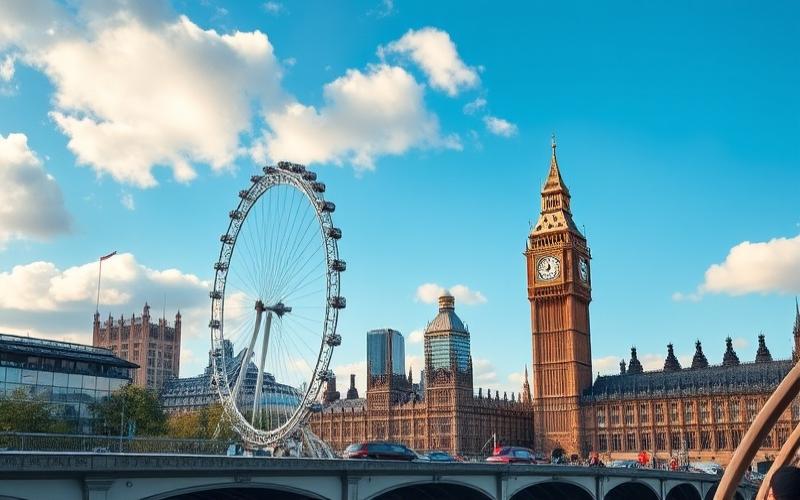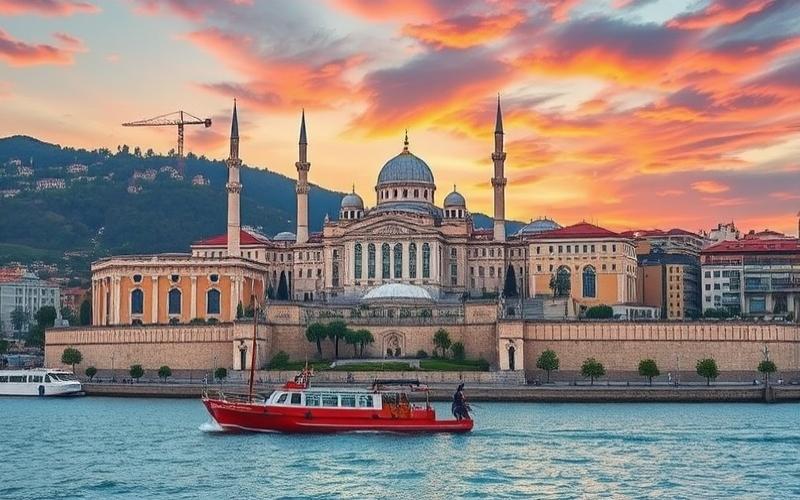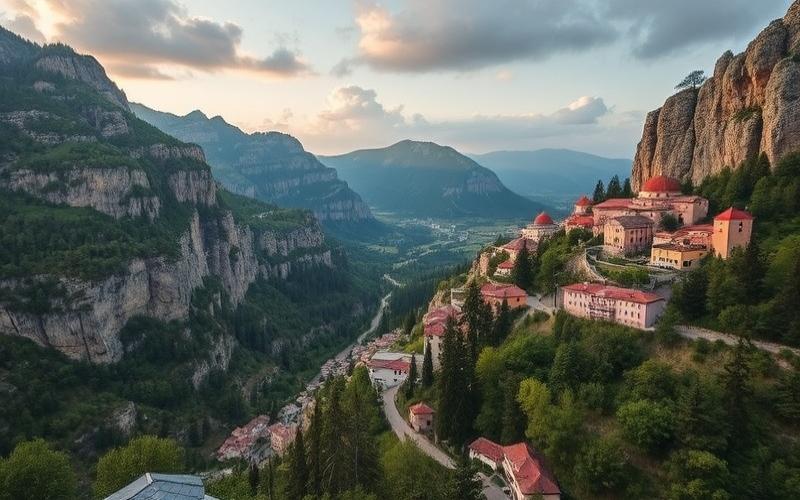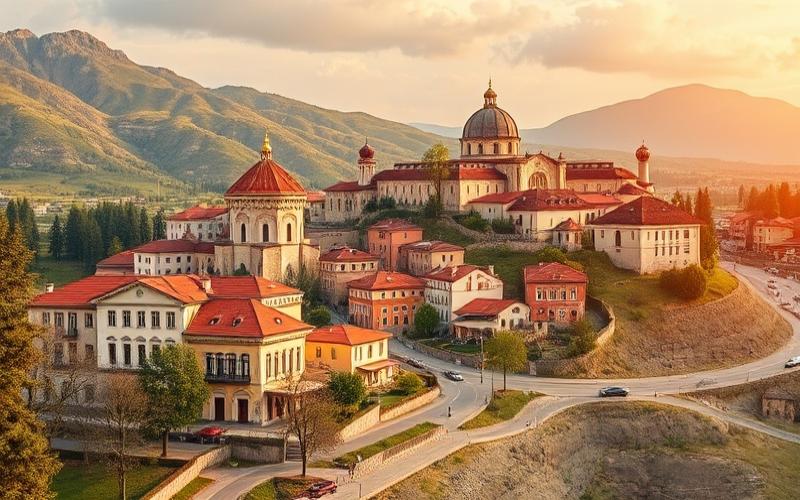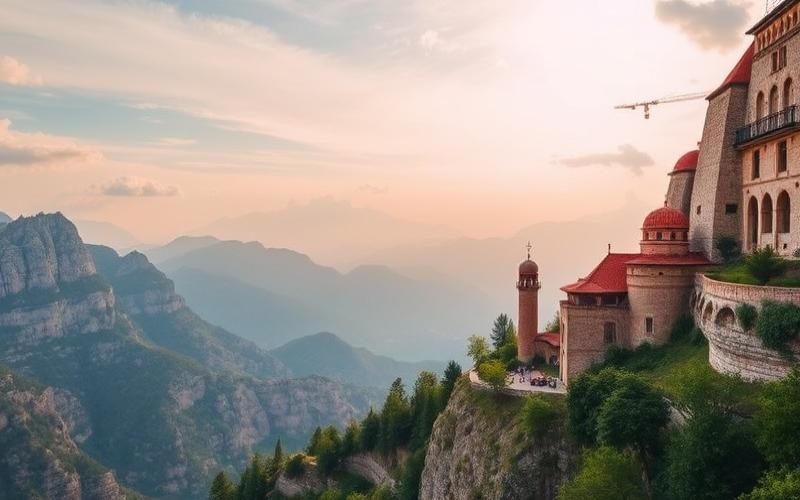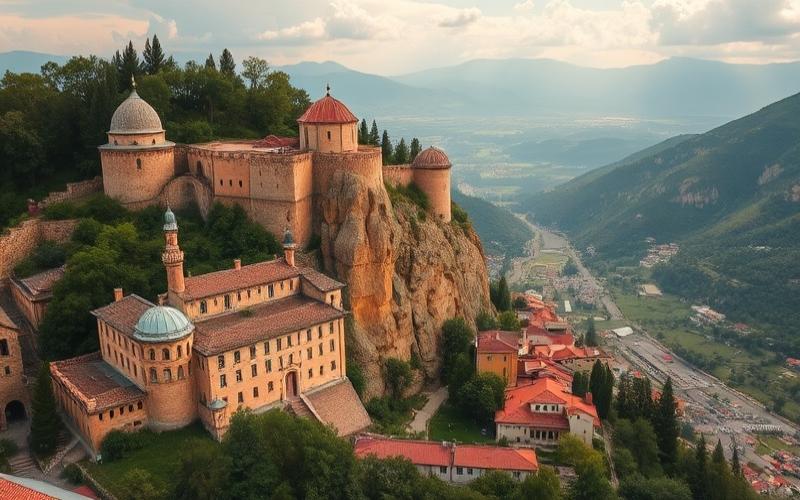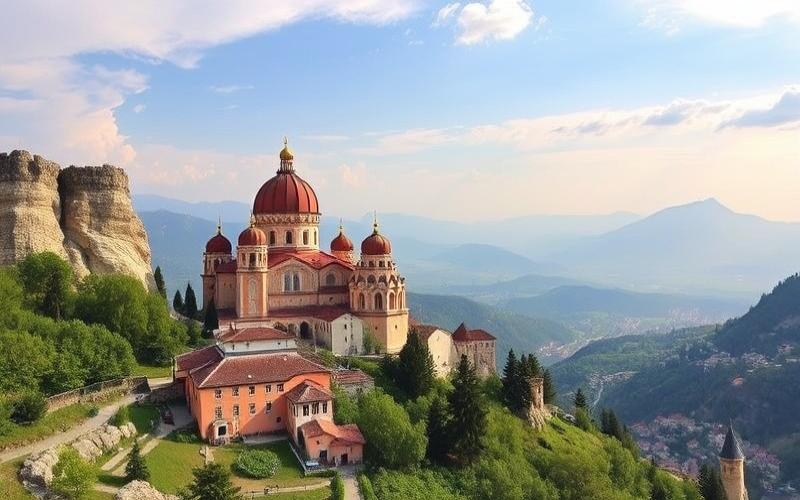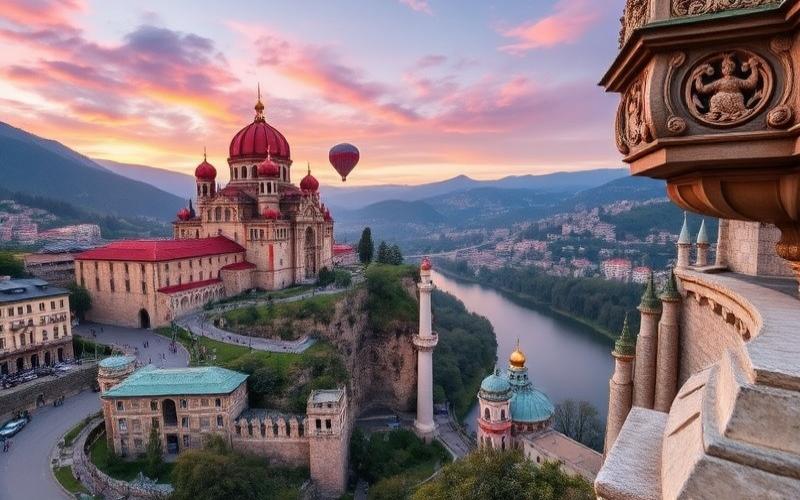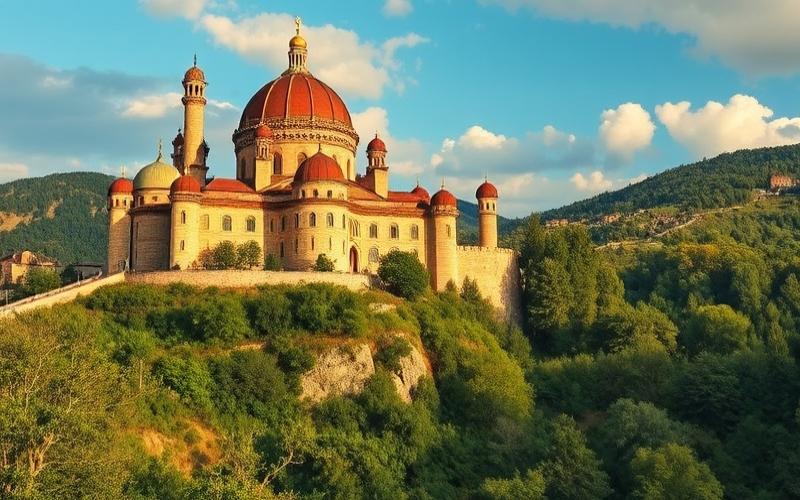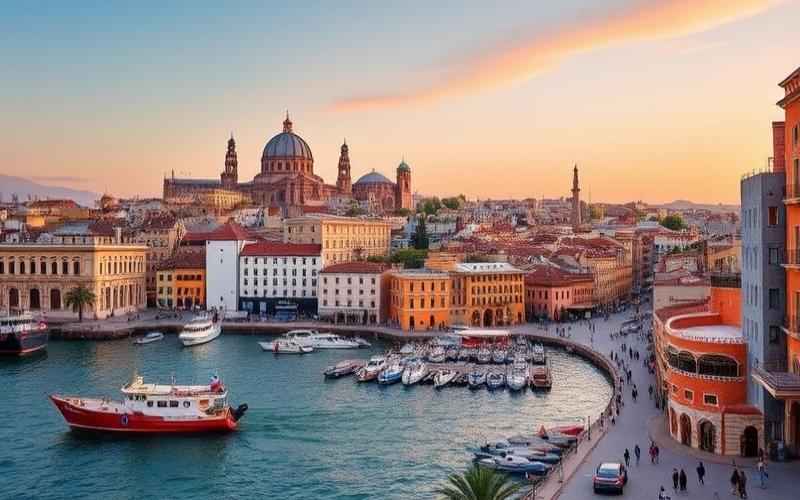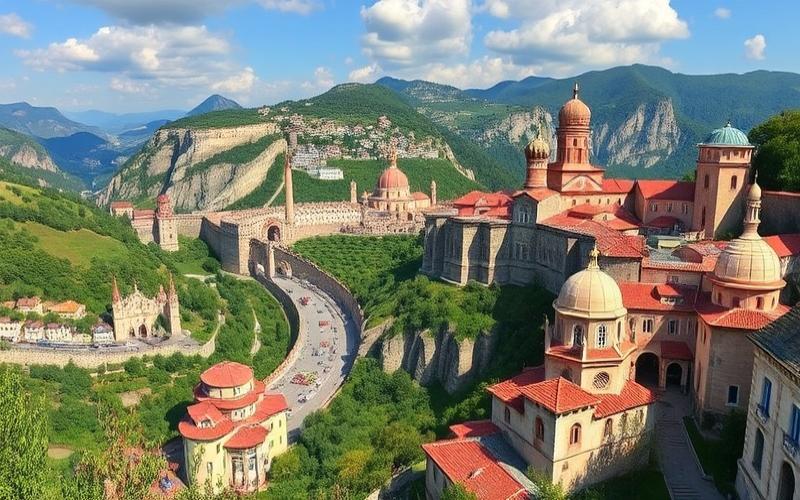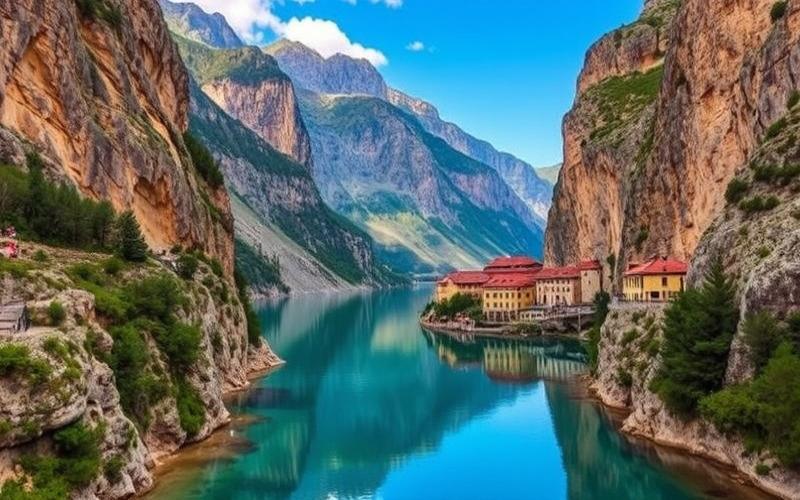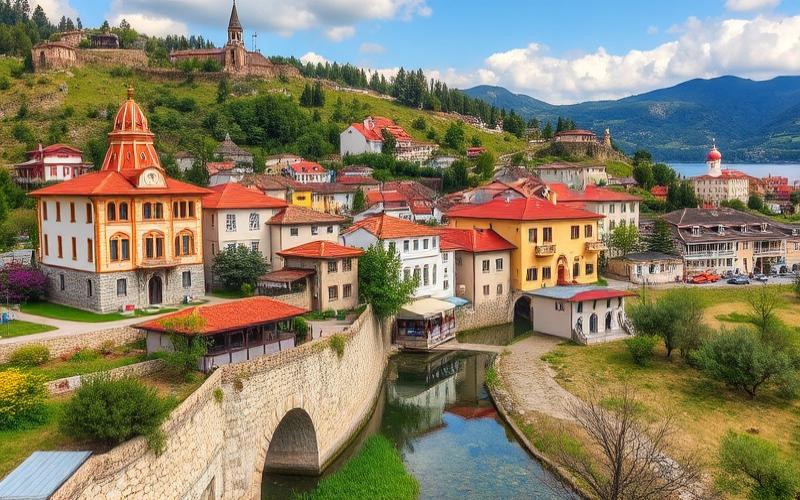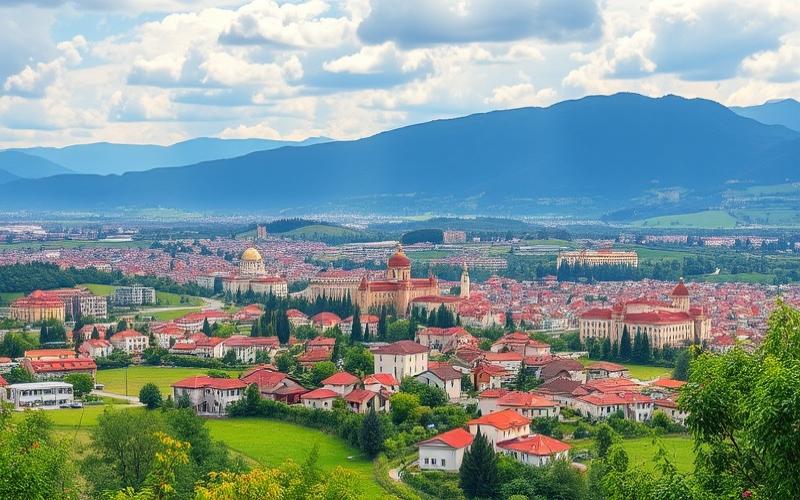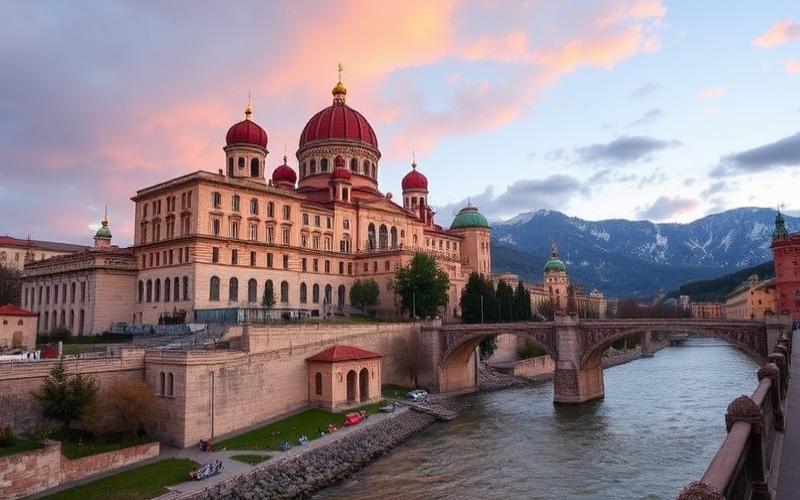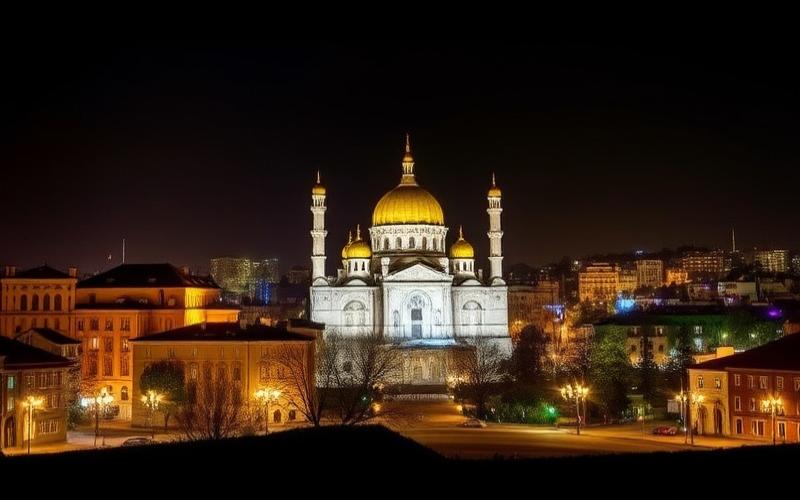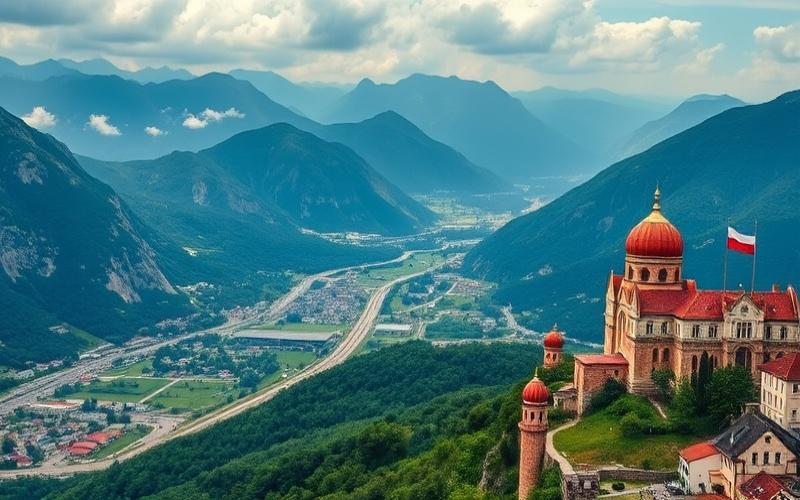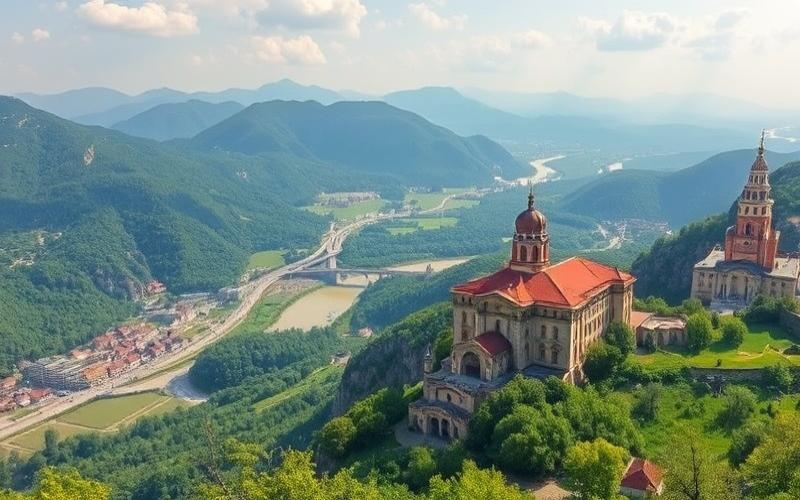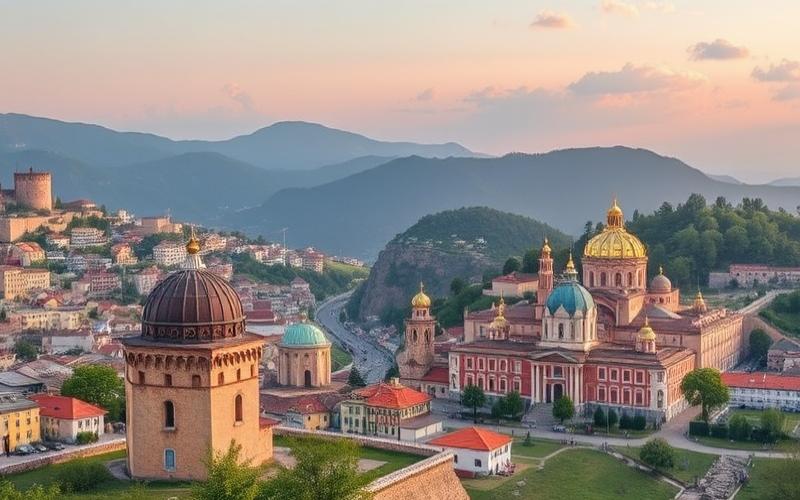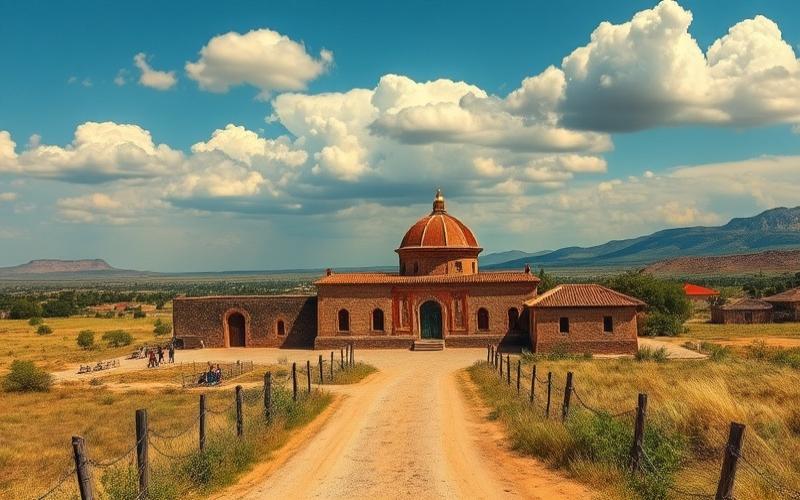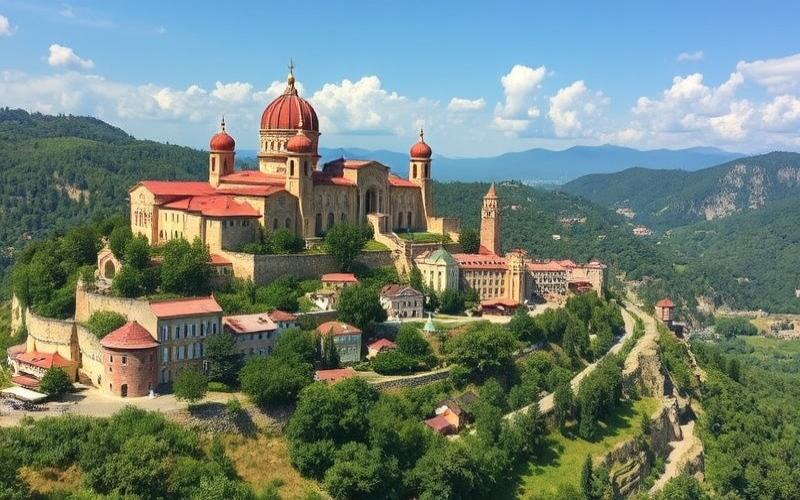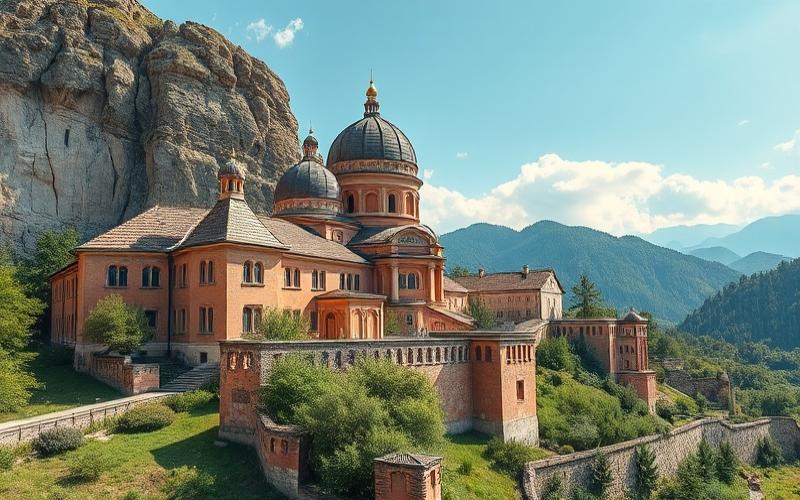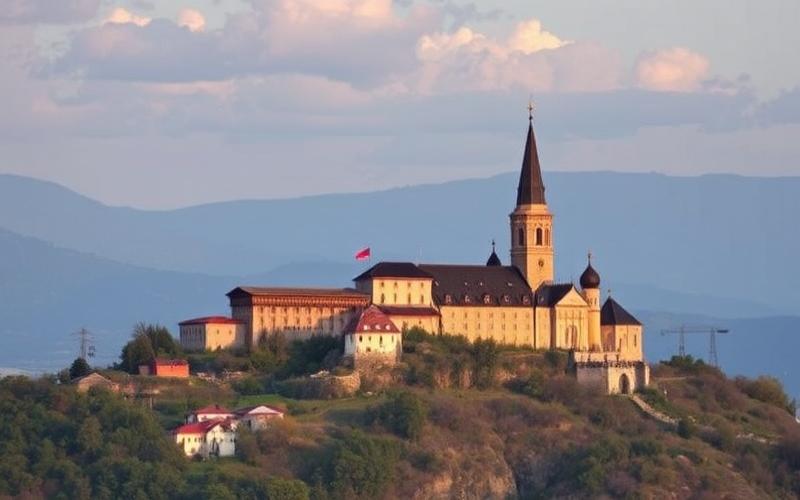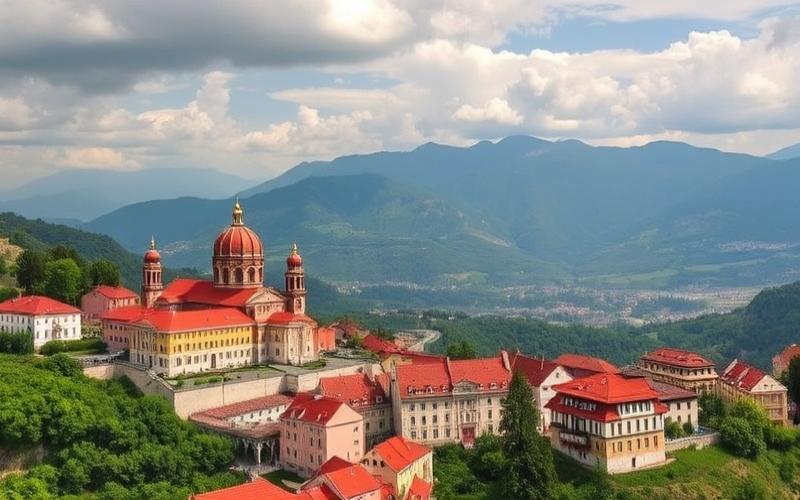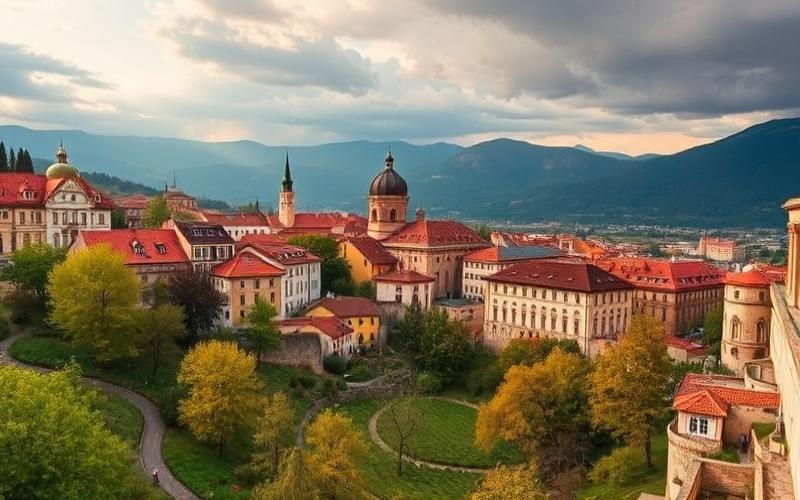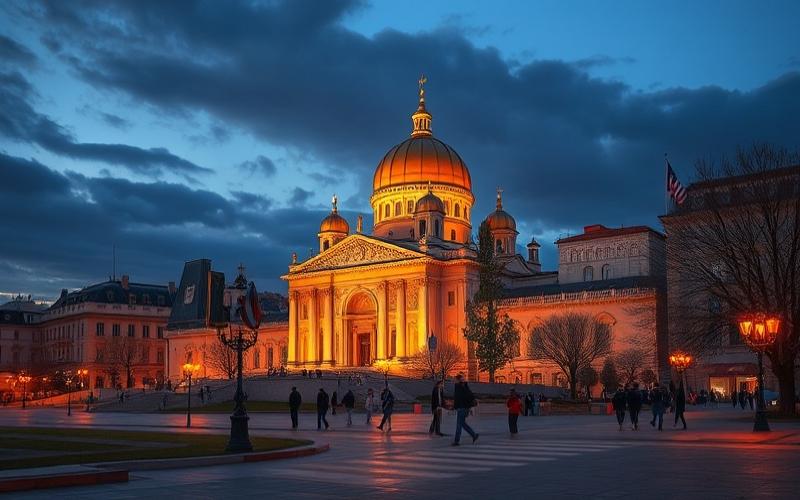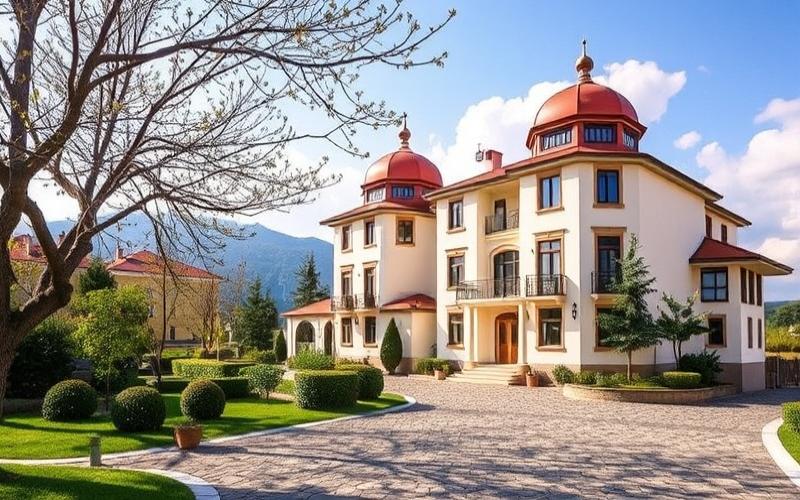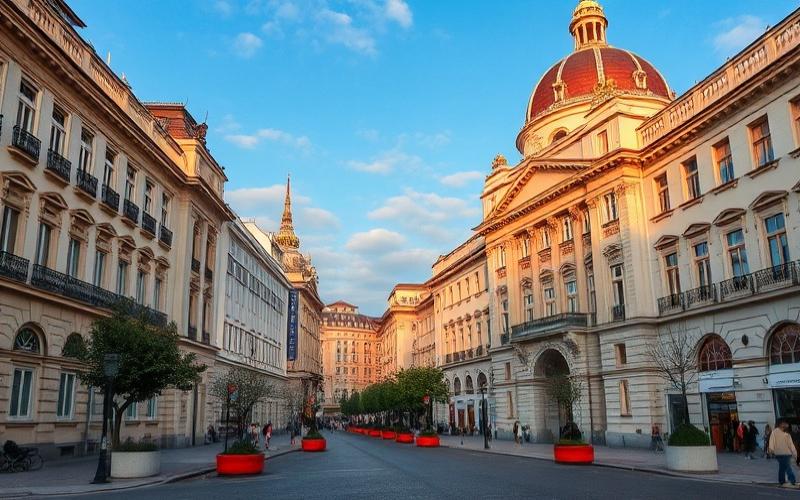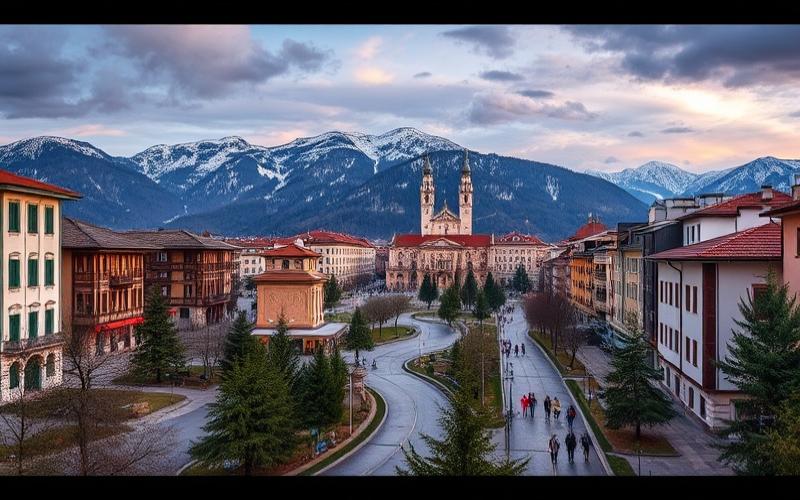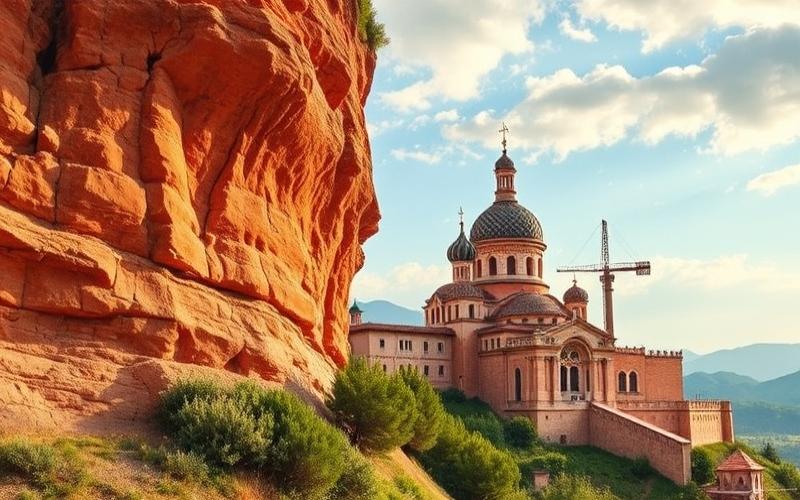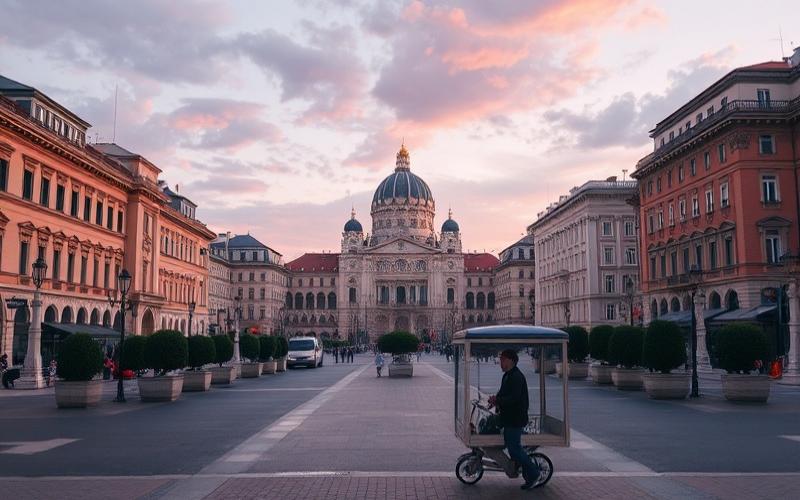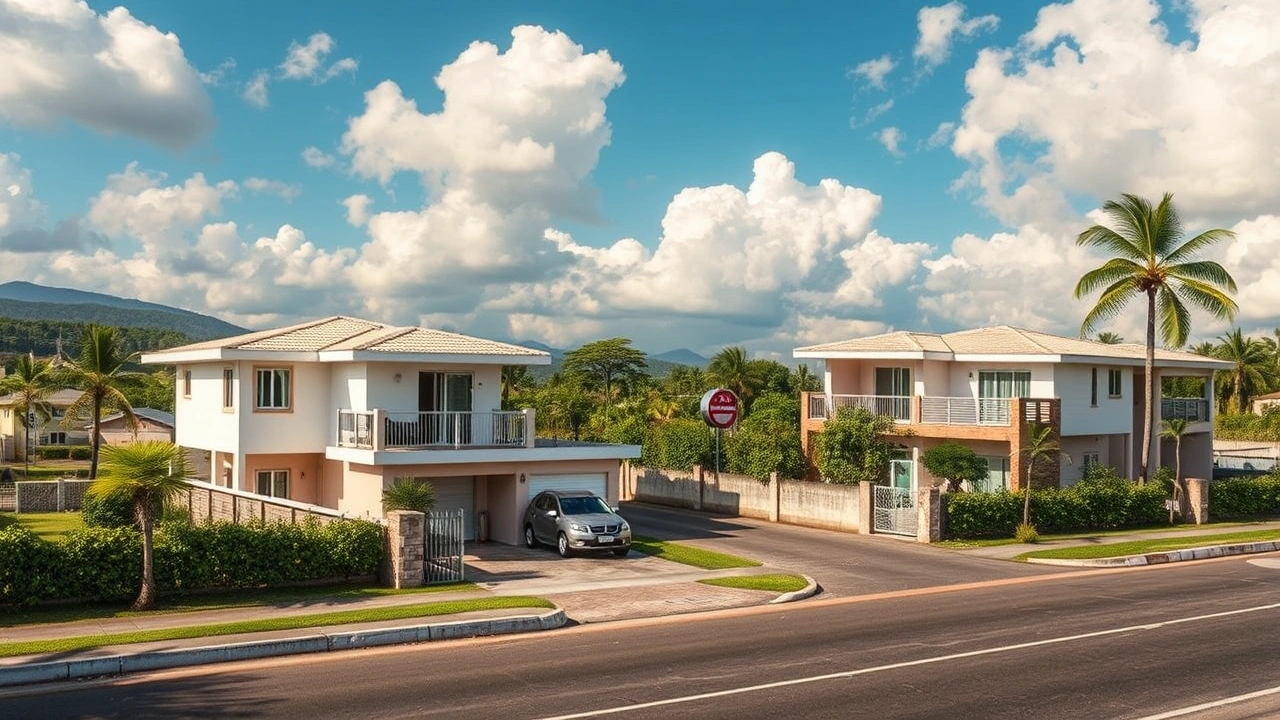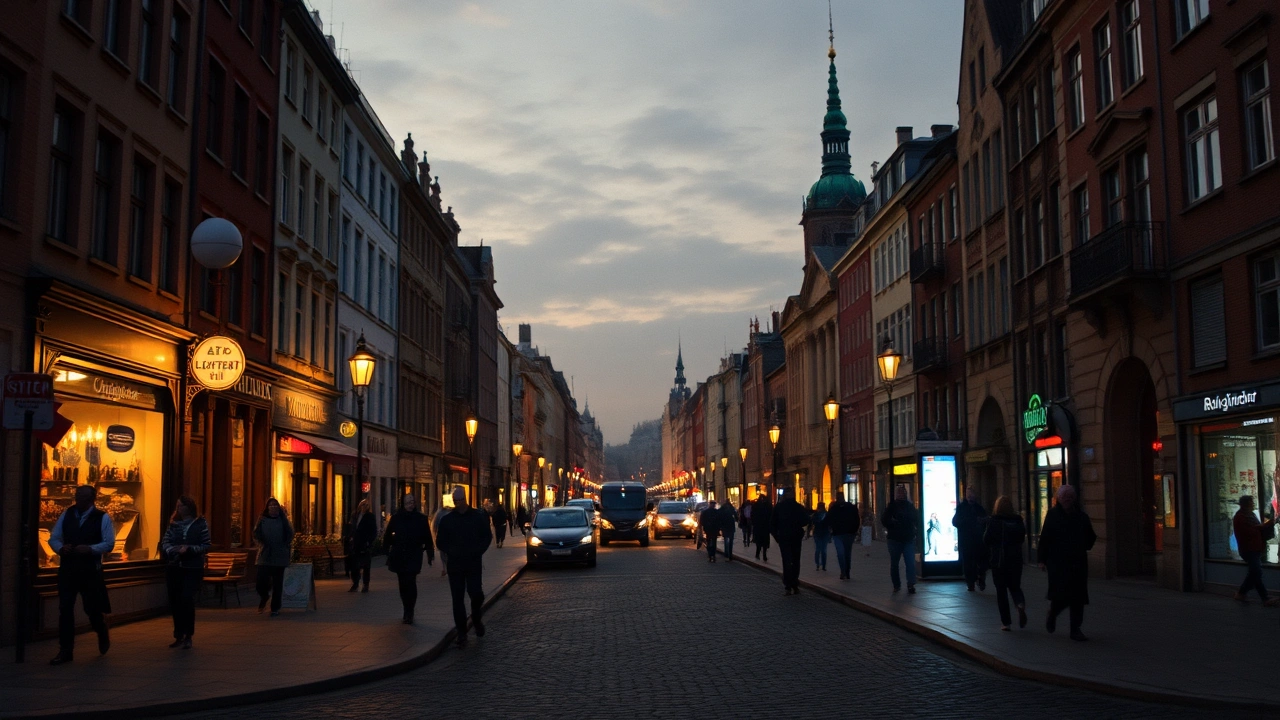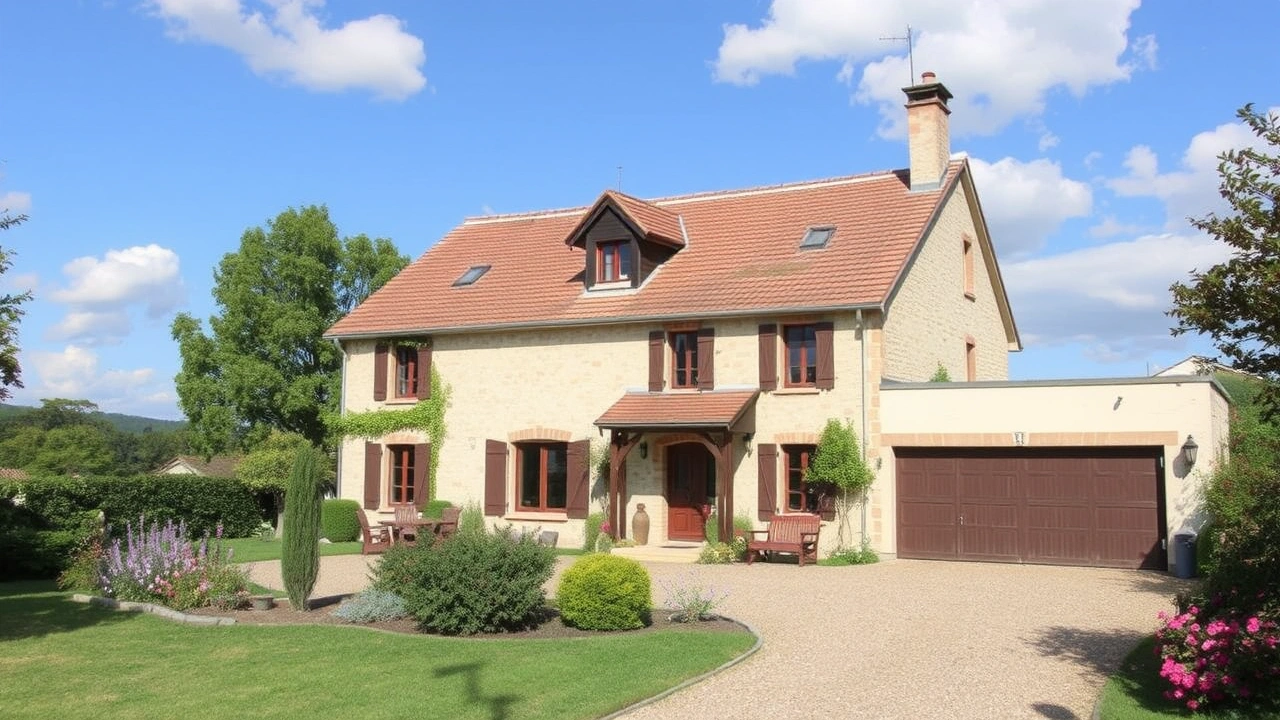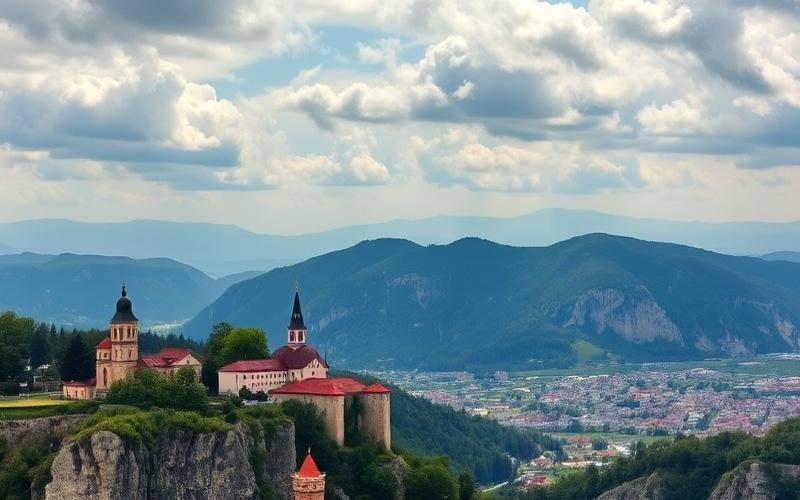
 Published on and written by Cyril Jarnias
Published on and written by Cyril Jarnias
Bulgaria, an enchanting country nestled in the heart of the Balkans, is attracting an increasing number of foreign real estate investors drawn by its attractive prices and growth potential. Renovating a property in this country can prove to be an excellent strategy to significantly increase your property’s value while enjoying an exceptional living environment. Whether you’ve set your sights on a traditional village house, an urban apartment, or a seaside villa, renovation will not only allow you to adapt the home to your tastes and needs but also to achieve an interesting capital gain in the medium term.
Indeed, the Bulgarian real estate market has experienced sustained growth for several years. According to the latest Eurostat data, housing prices in Bulgaria increased by 3.9% in the third quarter of 2024 compared to the previous quarter, the highest increase among European Union countries. This upward trend is expected to continue in the coming years, offering promising prospects for savvy investors.
Renovating a property in Bulgaria offers numerous advantages: beyond improving the property’s comfort and aesthetics, it allows you to optimize its energy performance, bring it up to current standards, and increase its attractiveness on the rental or resale market. Additionally, labor and material costs remain relatively affordable in Bulgaria compared to other European countries, making renovation projects particularly interesting from a financial perspective.
In this article, we will guide you through the different stages of a renovation project in Bulgaria, give you tips for establishing your budget and finding necessary financing, and help you make the right choices regarding materials to optimize your investment.
From Blueprint to Reality: Key Steps of Your Renovation Project
Renovating a property in Bulgaria requires a methodical and well-planned approach. Here are the main steps to follow to successfully complete your project:
1. Initial Assessment and Project Design
Before starting work, it’s crucial to conduct a thorough assessment of your property. Hire a local architect or building expert to inspect the structure, electrical and plumbing systems, and the general condition of the property. This assessment will help you identify priority work and establish a coherent renovation plan.
Once the assessment is complete, clearly define your renovation objectives. Do you want to modernize the interior while preserving the authentic charm of the exterior? Do you want to create additional spaces or optimize the existing layout? Work with an architect to design a project that meets your expectations while respecting local technical and regulatory constraints.
2. Obtaining Necessary Permits
In Bulgaria, as in many countries, certain renovation works require specific permits. Check with the local municipality (obshtina) to find out which permits are required for your project. Work affecting the building structure, modifying its facade or usage typically requires a building permit (razreshenie za stroezh).
Don’t hesitate to hire a lawyer specialized in real estate law to assist you with these administrative procedures. This will save you a lot of trouble and ensure your project complies with local regulations.
3. Selecting Professionals and Planning the Work
The choice of craftsmen and companies who will carry out your work is a crucial step. Prioritize recommended local professionals and request multiple quotes to compare prices and services. Ensure that selected companies are properly registered and insured.
Establish a detailed work schedule in coordination with the different trades. Allow for a safety margin to handle unexpected issues, which are common in renovation projects. If you don’t reside on site, consider entrusting site supervision to a local project manager who can monitor work progress and manage any problems in your absence.
4. Work Execution and Site Monitoring
Once work begins, ensure regular communication with the craftsmen and project manager. Make regular site visits if possible, or request progress reports and photos. Don’t hesitate to ask questions and request clarifications if certain aspects seem unclear.
Be prepared to face unexpected issues and adapt your project accordingly. Flexibility is often key to a successful renovation, especially when dealing with older buildings that may reveal surprises once work begins.
5. Work Acceptance and Finishing Touches
At the end of the construction site, conduct a thorough inspection of the property with the craftsmen and project manager. Create a list of any points to correct or finalize. Only sign the final work acceptance once all details are resolved to your satisfaction.
Finally, remember to update official documents related to your property to reflect the changes made. This may include updating the land registry or obtaining a new energy certificate.
Good to Know:
In Bulgaria, it’s common to pay craftsmen in several installments throughout the project. Make sure to clearly define payment terms in your contracts and retain part of the final payment until complete work acceptance.
Master Your Budget: Financing and Cost Management
The success of a renovation project in Bulgaria largely depends on rigorous budget management. Here’s how to approach this crucial aspect:
Realistic Cost Estimation
Start by establishing a detailed cost estimate for your project. Consider not only the work itself but also additional expenses such as architect fees, building permits, construction insurance, and allow for a margin for unexpected costs (typically 10 to 15% of the total budget).
Renovation costs in Bulgaria vary considerably depending on location, scope of work, and quality of finishes chosen. As a guideline, for a complete renovation, budget between 300 and 800 euros per square meter in 2025. Work in major cities like Sofia or Varna will generally be more expensive than in rural areas.
Financing Options
To finance your project, several options are available to you:
- Self-financing: If you have the necessary funds, this is often the simplest and least expensive solution.
- Bank loan: Bulgarian banks offer real estate loans to foreign residents, but conditions may be less favorable than in your home country. Compare offers from several institutions.
- Loan from your home country: If you own property in your country, consider a mortgage on your current property to finance your project in Bulgaria.
- Mixed financing: Combine multiple funding sources to optimize your financial plan.
Cost Management During Work
Once construction begins, closely monitor expense evolution. Use a spreadsheet to maintain a detailed budget, comparing actual costs to initial estimates. Be vigilant about overruns and don’t hesitate to renegotiate certain items if necessary.
Be careful with extras and additional work that can quickly inflate the bill. Carefully evaluate each modification request and its impact on the overall budget before giving your approval.
Tax Optimization
Research potential tax incentives related to renovation in Bulgaria. For example, energy efficiency improvement work can sometimes benefit from tax advantages. Consult a local accountant to optimize the tax structure of your investment.
Good to Know:
In Bulgaria, price negotiation is common, including for construction materials and craftsmen’s services. Don’t hesitate to ask for discounts, especially if you’re buying in bulk or entrusting multiple work packages to the same company.
The Art of Choice: Selecting the Right Materials for a Sustainable Renovation
Material selection is crucial in a renovation project in Bulgaria. It influences not only the aesthetics and comfort of your property but also its durability and long-term value. Here are some tips for making the right choices:
Prioritize Quality and Durability
Investing in quality materials may seem expensive in the short term, but it’s often a wise choice in the long run. Durable materials will require less maintenance and replacement, resulting in savings over time.
For flooring, local solid wood or porcelain stoneware tile are popular options in Bulgaria, combining aesthetics and resistance. For insulation, opt for high-performance materials like rock wool or extruded polystyrene, which will allow you to achieve substantial energy savings.
Adapt to the Local Climate
Bulgaria experiences cold winters and hot summers. Choose materials adapted to these climate variations. For windows, prefer double or triple glazing with PVC or thermal break aluminum frames. For roofing, terracotta or concrete tiles offer good weather resistance while preserving the building’s authenticity.
Respect Authenticity While Modernizing
If you’re renovating a traditional property, try to preserve its authentic character while adapting it to modern comfort standards. Use local materials like natural stone or wood for facades and decorative elements. For the interior, skillfully blend traditional elements (exposed beams, stone fireplaces) with contemporary equipment.
Choose Eco-Friendly Solutions
The trend toward eco-construction is growing in Bulgaria as elsewhere. Prioritize natural and recyclable materials like certified wood, cork, or lime. For paints and varnishes, choose products with low VOC (Volatile Organic Compounds) content to preserve indoor air quality.
Source Locally
Favor local suppliers for your construction materials. Not only will this support the local economy, but it will also allow you to benefit from more advantageous prices and shorter delivery times. Major DIY chains like Praktiker or Mr. Bricolage are well established in Bulgaria, but don’t hesitate to explore local suppliers for more specific or traditional materials.
Anticipate Maintenance
When choosing materials, consider their ease of maintenance, especially if you plan to rent your property or don’t reside there year-round. Easy-to-clean finishes, washable paints, and robust equipment will make your life easier and reduce long-term maintenance costs.
Good to Know:
Bulgaria has a rich craft tradition. Don’t hesitate to incorporate elements of local craftsmanship into your renovation, such as hand-painted tiles or carved woodwork. These authentic touches will add character to your property while supporting local artisans.
Conclusion: A Promising Investment in a Growing Market
Renovating a property in Bulgaria represents an attractive investment opportunity in a dynamic and expanding real estate market. With careful planning, rigorous budget management, and wise material choices, you can not only create a comfortable and personalized living space but also achieve significant added value on your investment.
The Bulgarian real estate market continues to show strong performance, with price growth among the highest in Europe. This trend, combined with still relatively affordable renovation costs, creates a favorable context for foreign investors looking to position themselves in this promising market.
Whether you plan to use your renovated property as a secondary residence, rental investment, or for medium-term resale, a well-executed renovation will allow you to optimize your property’s value and attractiveness.
Remember that the key to success lies in a comprehensive approach, taking into account not only technical and financial aspects but also the country’s cultural and regulatory specificities. Surround yourself with competent local professionals and don’t hesitate to be accompanied by international real estate investment experts to maximize your project’s chances of success.
Disclaimer: The information provided on this website is for informational purposes only and does not constitute financial, legal, or professional advice. We encourage you to consult qualified experts before making any investment, real estate, or expatriation decisions. Although we strive to maintain up-to-date and accurate information, we do not guarantee the completeness, accuracy, or timeliness of the proposed content. As investment and expatriation involve risks, we disclaim any liability for potential losses or damages arising from the use of this site. Your use of this site confirms your acceptance of these terms and your understanding of the associated risks.

